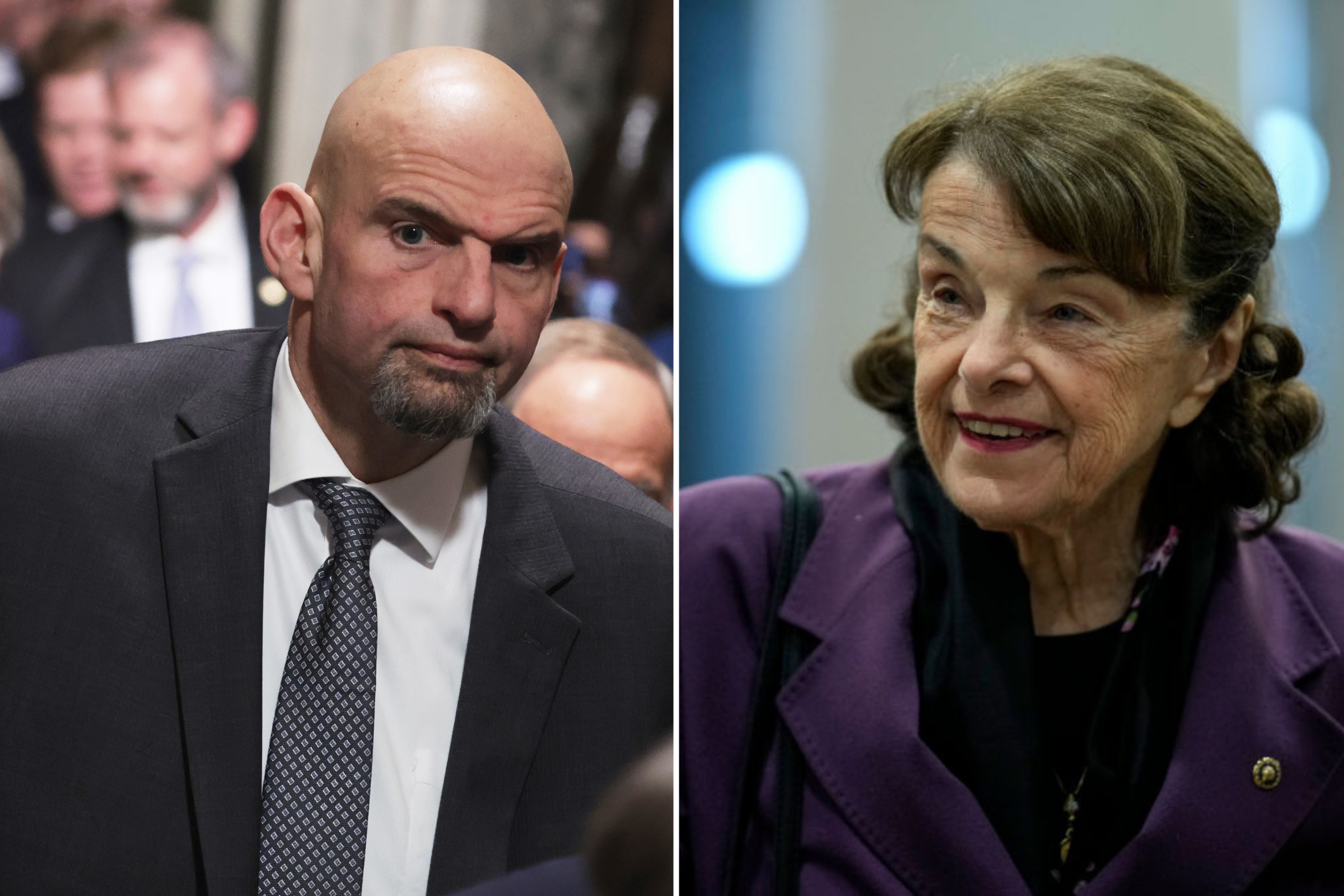Senator Dianne Feinstein of California was forced to temporarily step away from the Senate after being hospitalized, leaving Democrats with no room for error to confirm President Joe Biden’s judicial nominees.
Feinstein, a Democrat, said in a statement on Thursday that she had been admitted to a hospital in San Francisco after being diagnosed last month with a case of shingles, a type of painful rash caused by a viral infection. The senator said that she hoped “to return to the Senate later this month” and was expected to make a full recovery.
Democratic Senator John Fetterman of Pennsylvania is also away from the Senate, having checked himself into a hospital to treat severe depression on February 16. While there is no firm timeline for his return, Fetterman’s communications director, Joe Calvello, said on Monday that the senator was “on a path to recovery.”
Fetterman’s 2022 midterm election win gave Senate Democrats a 51-49 advantage over Republicans. However, his absence, along with Feinstein’s, leaves the chamber evenly divided between the parties.
Alex Wong; Drew Angerer
With Republican Senator Mike Crapo of Idaho and Democratic Senator Jeff Merkley of Oregon also away from Washington in recent days, the current balance of power in the Senate stands at 48-48.
Vice President Kamala Harris has already been called into action three times this week to break ties to confirm two of Biden’s judicial picks. As the Senate is continuing to consider Biden nominees, the vice president’s tie-breaking vote will remain crucial until the return of Feinstein or Fetterman.
Sarah Binder, political science professor at George Washington University’s Columbian College of Arts and Science, told Newsweek on Thursday that the deadlock could slow the confirmation process or force Democrats to focus on nominees with bipartisan support.
“Slim majorities are always challenging, but especially so in today’s Senate,” Binder said. “There are not many legislative measures on tap in the Senate, but Democrats will feel the pinch of a tied Senate whenever they try to confirm a controversial nominee.”
“In those cases, Democrats will need Vice President Harris back in the chair to break a tied vote to cut off debate on a confirmation vote,” she added. “That might slightly slow down Democrats and encourage them to focus on nominees who have some support from across the aisle.”
Feinstein, who at 89 is the nation’s oldest sitting senator and the longest-serving female senator ever, announced last month that she would not be seeking another term in office.
Despite frequent speculation that Feinstein would step down due to concerns about her advanced age and health, the senator said that she expects to finish her current term, which ends in January 2025.
Fetterman’s health has been under scrutiny since before he took office, having suffered a serious stroke in May 2022 that became a frequent topic of discussion for supporters of Pennsylvania Senate Republican candidate Mehmet Oz during the election campaign.
















Discussion about this post